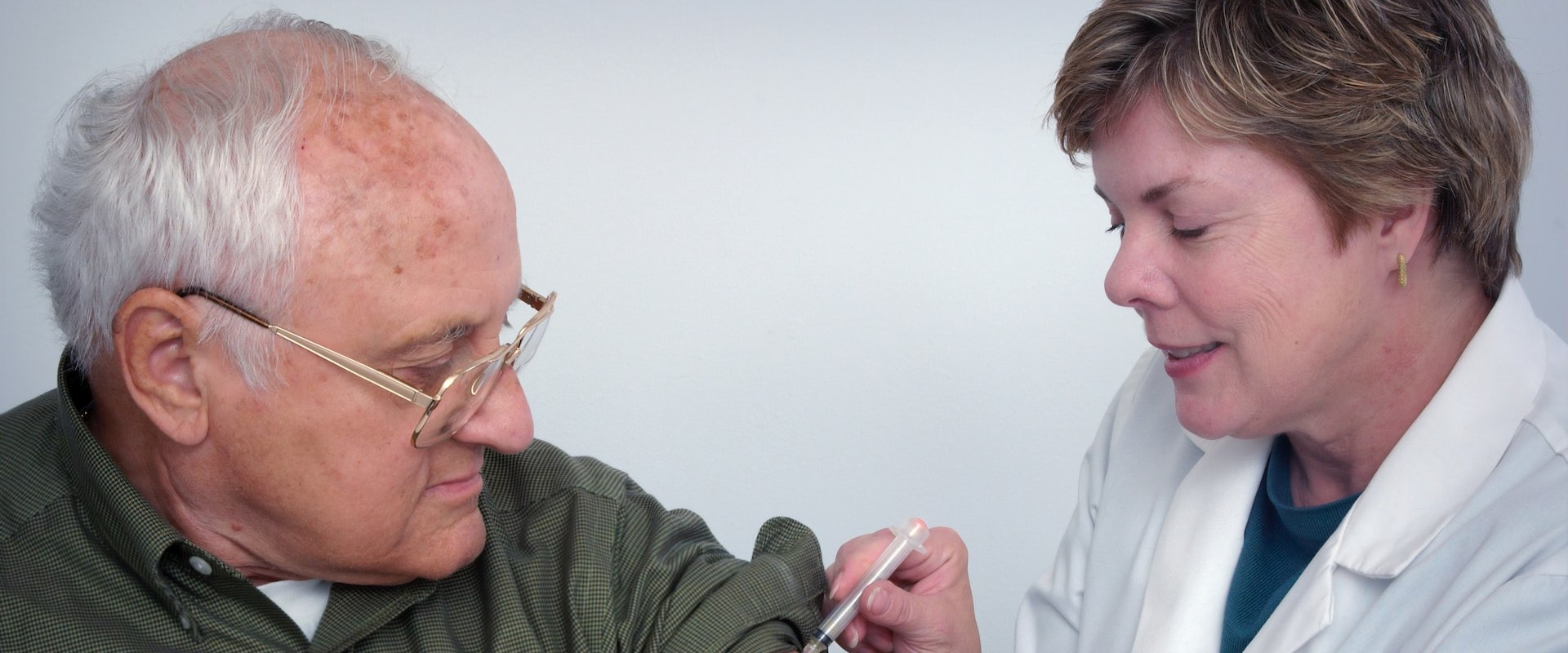In Nottingham, a group of extraordinary individuals has emerged as the unsung heroes of senior healthcare. They possess a unique set of skills that can make all the difference in life-threatening situations. These individuals are not caped crusaders or fictional characters but everyday people who have undergone first aid training and become the First Aid Superheroes of Nottingham. Their commitment to learning life-saving skills has not only improved the quality of care for seniors but has also transformed the way healthcare is delivered in the city. In this article, we will explore how these first-aid superheroes are making a significant impact on senior healthcare in Nottingham and why their training is essential for everyone.
What Is A First Aider
A first aider is someone who has received training in basic first aid techniques and can provide immediate assistance to someone who has been injured or suddenly taken ill. They are typically trained to assess the situation, provide initial care, and stabilize the injured or sick person until professional medical help arrives. First aiders may be found in various settings, such as workplaces, schools, sports events, or community organizations. Their primary goal is to preserve life, prevent further injury or harm, and promote recovery.
What Is Senior Healthcare
Senior healthcare refers to the medical services and support provided to elderly individuals. As people age, their healthcare needs become more complex and require specialised attention. Senior healthcare addresses the specific health concerns and challenges older adults face.
Why Is It Important For Nottingham Senior Healthcare Staff To Possess These Life-Saving Skills
Nottingham senior healthcare staff needs to possess life-saving skills for several reasons.
Emergency Response
Seniors may experience sudden health emergencies such as heart attacks, strokes, or falls. Staff with life-saving skills ensure immediate and appropriate action can be taken to stabilize the senior's condition until professional medical help arrives.
Timely Intervention
A medical emergency can be significantly improved by prompt action. Life-saving staff can provide urgent assistance, CPR, bleeding control, and essential life support until medical help arrives.
Increased Safety
Senior healthcare facilities can be prone to accidents such as slips, trips, and falls. Staff members with life-saving skills can assess the situation, provide first aid, and prevent further injuries or complications.
Enhanced Confidence
Having trained staff members on-site gives peace of mind to both seniors and their families. They can trust that their loved ones are in capable hands and that appropriate measures will be taken in an emergency.
Possessing life-saving skills is crucial for senior healthcare staff in Nottingham to ensure the safety, well-being, and timely intervention of seniors in case of medical emergencies.
What Are The Key Life-Saving Skills That Nottingham Senior Healthcare Staff Should Learn
Nottingham senior healthcare workers must have life-saving capabilities. You can save lives in emergencies with these talents. Top healthcare personnel should master these life-saving skills in Nottingham.
Cardiopulmonary Resuscitation (CPR)
CPR is a vital skill that can be used to restore blood circulation and breathing in someone experiencing cardiac arrest. Nottingham senior healthcare staff should be trained in adult and pediatric CPR techniques.
Automated External Defibrillator (AED) Use
AEDs are devices used to deliver an electric shock to the heart in cases of cardiac arrest. Learning how to use an AED correctly is critical for senior healthcare staff, as prompt defibrillation can significantly improve the chances of survival.
Essential Life Support (BLS)
BLS is a set of skills to provide immediate care to individuals in life-threatening situations. It includes assessing the patient's condition, giving rescue breaths, performing chest compressions, and managing an obstructed airway.
Advanced Cardiovascular Life Support (ACLS)
ACLS is a more advanced set of skills specifically tailored for healthcare professionals. It includes advanced airway management, pharmacology, and the ability to interpret cardiac rhythms. Nottingham senior healthcare staff who frequently work in critical care areas should consider ACLS training.
It is essential for senior healthcare staff in Nottingham to regularly refresh and update their life-saving skills through training courses and certifications. Staying up-to-date with the latest guidelines and advancements in emergency care is vital to providing the best possible care to patients in critical situations.
What Are The Common Emergencies That Nottingham Senior Healthcare Staff May Encounter
Staff members working in senior healthcare in Nottingham may encounter various common crises, including the following.
Falls
Mobility, balance, and pharmaceutical side effects increase the risk of falling in older people. Falls may require someone to assist, examine injuries, and arrange further medical evaluation.
Respiratory Distress
Older adults may experience respiratory emergencies such as difficulty breathing, chest pain, or sudden shortness of breath. Staff may need to administer oxygen, monitor vital signs, and contact emergency medical services if the situation worsens.
Cardiac Events
Seniors are more susceptible to cardiac emergencies, including heart attacks and arrhythmias. Healthcare staff should be trained in recognizing the signs and symptoms of these conditions, performing CPR, and using automatic external defibrillators (AEDs) if available.
Stroke
Senior healthcare personnel in Nottingham should recognise stroke symptoms, including sudden weakness or numbness on one side, difficulty speaking, and severe headaches. Stroke sufferers need emergency medical services quickly.
Senior healthcare workers in Nottingham must become qualified first-aiders in CPR and emergency equipment. For senior patients' safety in healthcare settings, reliable communication routes and emergency medical services are essential.
How To Book A First Aid Training Session In Nottingham
The following are the procedures that you can take to schedule a first-aid training session in Nottingham.
Research Training Providers
Look for reputable first-aid training providers in Nottingham. You can search online, ask for recommendations from friends or colleagues, or contact local healthcare organisations.
Contact The Training Provider
Once you have identified a suitable training provider, contact them to inquire about their first-aid training sessions. You can call them, email them, or check their website for available courses.
Course Selection
Discuss your requirements with the training provider and determine the most suitable first-aid training course. Consider factors such as the level of training required (e.g., basic first aid, advanced first aid), the course duration, and any specific certifications you may need.
Check Availability
Ask the training provider about the availability of the course you are interested in. They will provide you with information on upcoming course dates and times.
Remember to check the training provider's cancellation and rescheduling policies in case you need to make any changes to your booking.
What Should You Look For When Choosing A First Aid Course Provider In Nottingham
When choosing a first-aid course provider in Nottingham, there are several important factors to consider. Here are some things to look for.
Accreditation
Ensure the course provider is accredited by a recognized organization, such as the Health and Safety Executive (HSE) or a reputable first aid training organization. This ensures that the training meets the required standards.
Course Content
Check the course content to ensure it covers all the necessary topics, such as CPR, choking, bleeding control, and basic first aid techniques. The course should be comprehensive and up-to-date with the latest guidelines.
Instructor Qualifications
Find out if the instructors are qualified and experienced in delivering first-aid training. They should have relevant certifications and experience providing first aid in real-life situations.
Course Duration
Consider the duration of the course and whether it fits your schedule. Some courses may be conducted over a few hours, while others may span several days. Choose a course that suits your availability and learning preferences.
Considering these factors, you can choose a first aid course provider in Nottingham that offers high-quality training and meets your specific needs.
Contact A Leading Supplier Of First Aid Training In Nottingham
Being a first aider and possessing senior healthcare skills is paramount for Nottingham Senior Healthcare staff. These life-saving skills enable them to respond promptly and effectively in emergencies, ensuring the safety and well-being of their patients. Critical life-saving skills that Nottingham Senior Healthcare staff should learn include CPR, first aid for choking, and primary wound care.
They may encounter common emergencies such as heart attacks, strokes, and falls, where their knowledge and skills can make a significant difference in saving lives. To book a first-aid training session in Nottingham, it is essential to choose a reputable and trustworthy provider. First Aid Course Nottingham is the ideal choice, as they have a solid background in providing comprehensive first aid training. Their services include offering a wide range of courses tailored to different levels of expertise and needs.
With their expertise and experienced instructors, individuals can gain the necessary skills and confidence to handle emergencies effectively. Contact First Aid Course Nottingham today to ensure you have the life-saving skills needed in senior healthcare settings.




